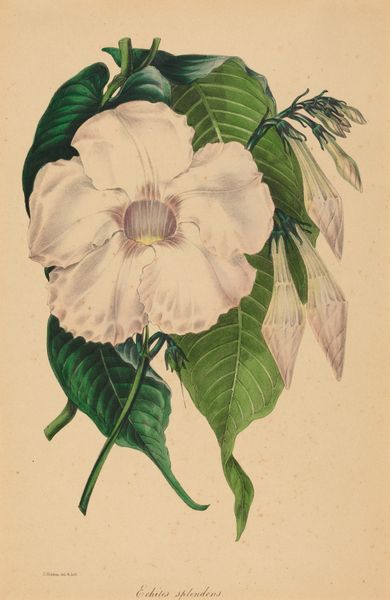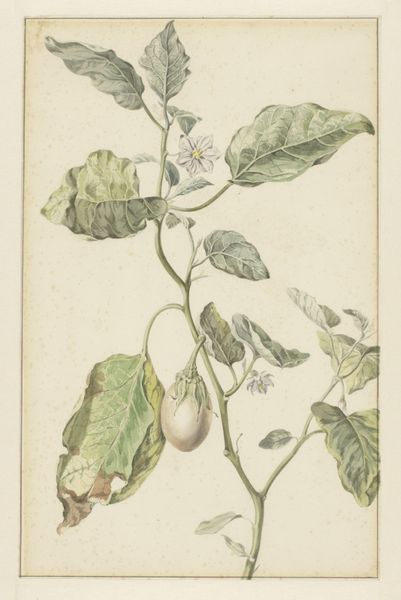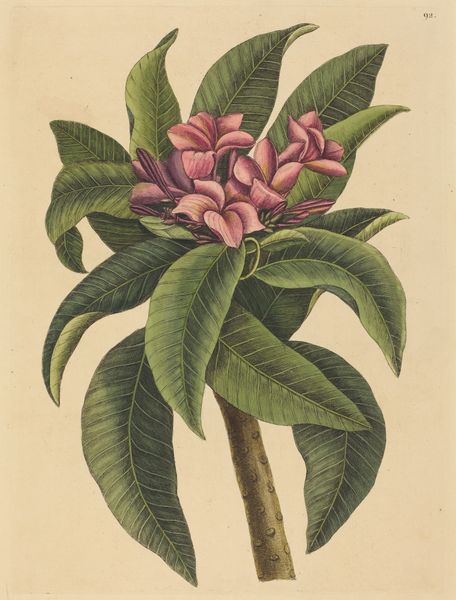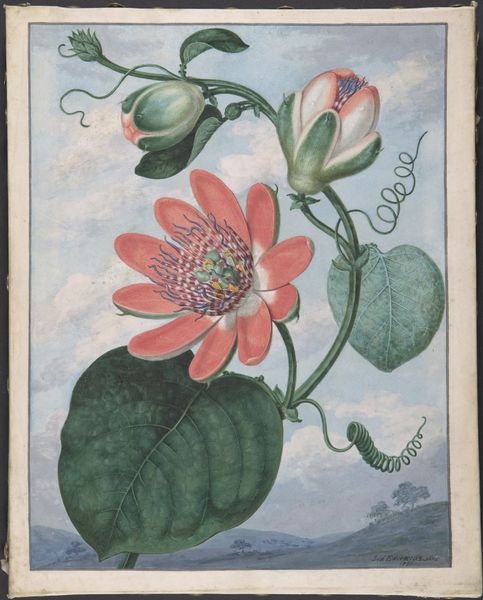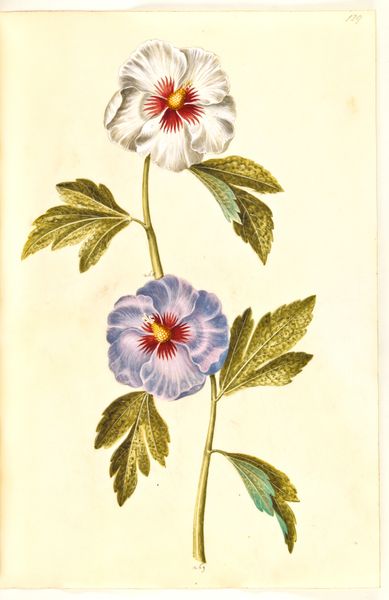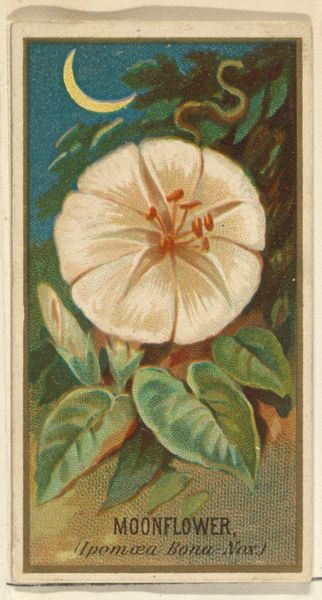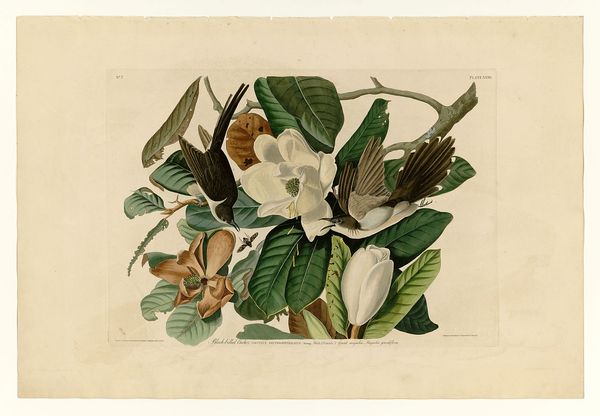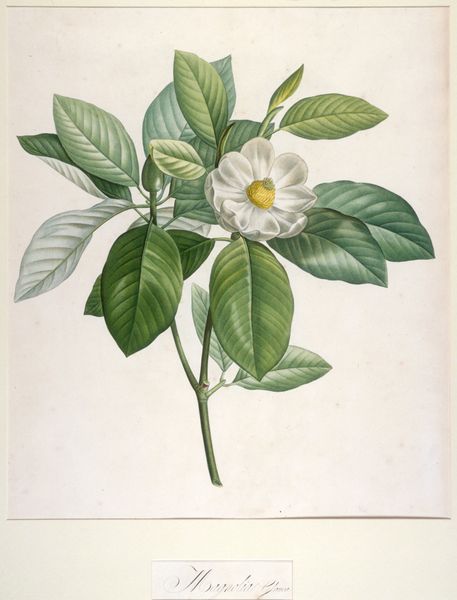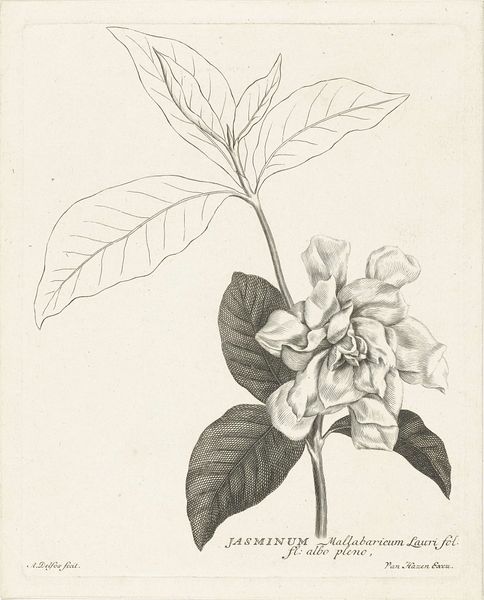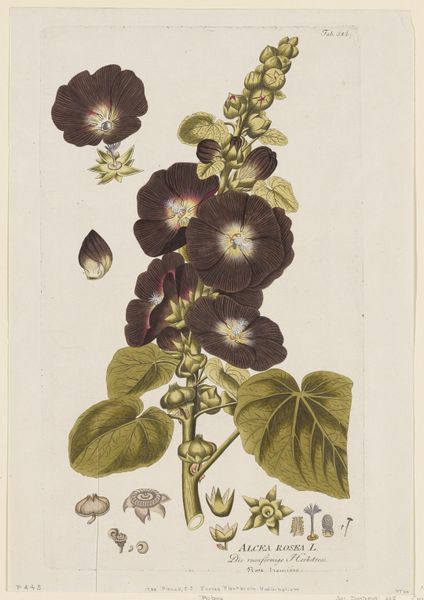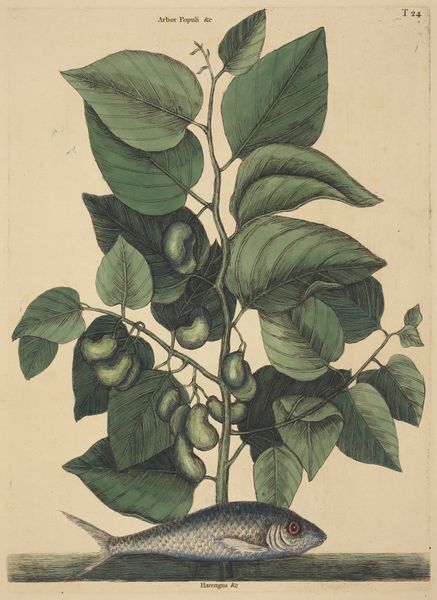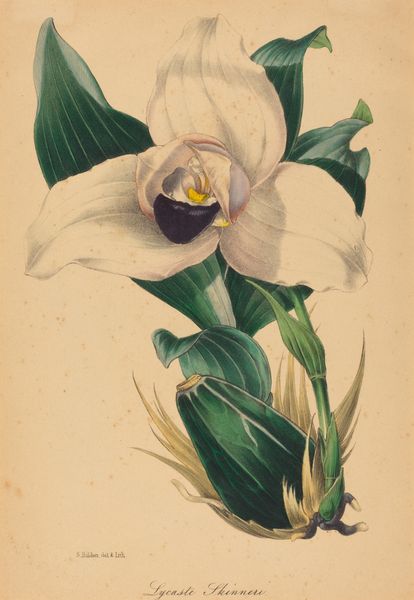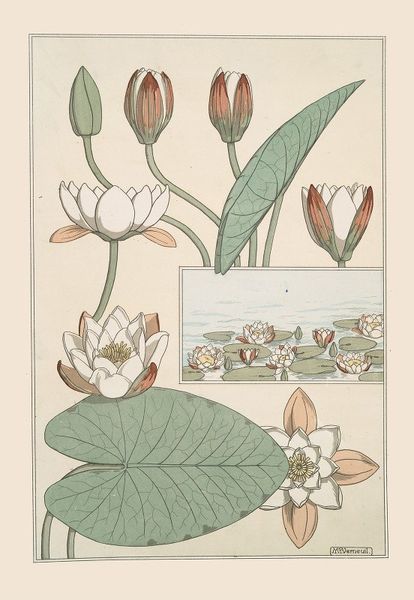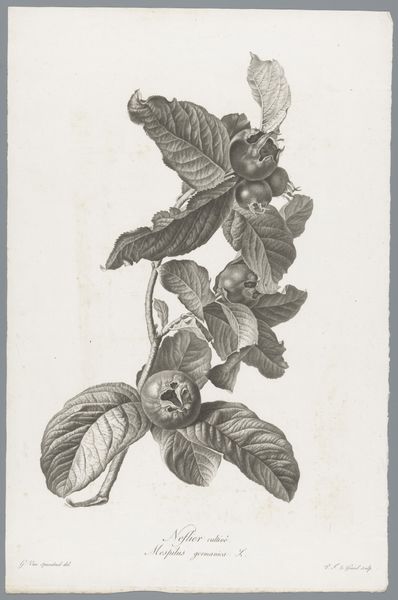
Magnolia grandiflora (The Laurel Tree of Carolina) c. 1743 - 1771
0:00
0:00
hand-colored-etching, print, etching
#
hand-colored-etching
#
baroque
# print
#
etching
#
figuration
#
england
#
line
#
realism
Dimensions: 19 1/2 x 13 in. (49.53 x 33.02 cm) (sheet, margins cut)
Copyright: Public Domain
This is Georg Dionysius Ehret’s rendering of Magnolia grandiflora, made with pen and watercolor. The white flower, centrally placed, stands out as a symbol of purity and immortality, a long-held association with white blossoms across cultures. Think back to the ancient world: white flowers were offered to deities in Greece, adorning temples as symbols of rebirth. This motif echoes through time, appearing in Renaissance paintings of the Virgin Mary. Here, Ehret presents not just a botanical study, but a vessel of collective memory. The magnolia, reminiscent of the lotus in Eastern traditions, conveys a cyclical view of life and death, a powerful force in our subconscious. The flower is not merely an object but an enduring emblem, a visual echo resonating with humanity’s deepest reflections on existence.
Comments
minneapolisinstituteofart about 2 years ago
⋮
Mark Catesby's Natural History was the first published account of the plants and animals of North America. It was also the first natural history book to include large-scale color plates. He lived in Virginia from 1712 to 1719 and in Carolina from 1722 to 1726. After returning to England, he spent some eighteen years preparing his sumptuous publication.
Join the conversation
Join millions of artists and users on Artera today and experience the ultimate creative platform.
